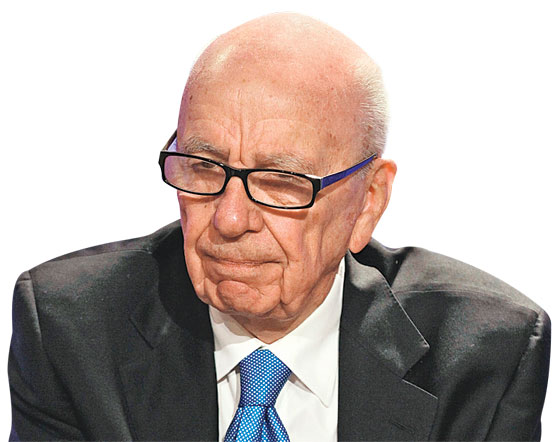
In his testimony about the phone-hacking scandal last week, Rupert Murdoch cast himself as a humble newspaperman who was sought out by craven politicians. He called the idea that his papers had a special relationship with British leadership “a complete myth.” He said he wanted “to put it to bed once and for all.”
The notion was certainly put to bed last week—but not by Murdoch. The parliamentary committee investigating News Corp. issued a blistering report that declared that Murdoch was “not a fit person” to own a global media company. It was a devastating finding, if unoriginal—anyone who’s been a target of “Page Six” has surely thought the same thing.
The scandal’s most certain consequence is a radical diminishment of Murdoch’s power in Great Britain. But what it means more broadly for News Corp. is a more complicated question. Some think that for all the publicity, the damage amounts to a flesh wound. “People who think this company is in trouble don’t know this company,” a former News Corp. executive explains. “They think the emperor is wounded. He’s really not.”
This argument is based partly on the fact that Murdoch’s British newspaper holdings have long been more about influence than profits—and also by the assumption that the cable businesses aren’t at risk. But that assumption may not be valid.
“It really puts BSkyB in play,” says a longtime Murdoch consigliere with deep knowledge of his businesses, referring to the largest British satellite broadcaster, of which News Corp. owns about 40 percent. With the parliamentary committee’s ruling as political cover, Ofcom, the British television regulator, could force News Corp. to sell its minority share. BSkyB generated $1.7 billion in profit for News Corp. last year, and if the company had to get out of the TV industry in Britain, the rationale for being in Britain at all suddenly would collapse. “If they were forced to sell BSkyB, those newspapers would be gone the next day,” the company insider says. “They no longer provide any value to the company. To me, this could get so bad that they could say, ‘To hell with the U.K. Let’s get out of the U.K. entirely.’” But the most damaging consequence is to Murdoch’s family legacy. There’s almost universal agreement that James has blown his chances to take over the company. “Rupert doesn’t talk to James,” is how an intimate puts it. And the distance that Elisabeth Murdoch has kept as the scandal unfolded, even refusing a seat on News Corp.’s board last year, has kept her image clean—but not made it any more likely that she will be brought in to clean things up. And Rupert doesn’t speak with her husband, the PR executive Matthew Freud, after Freud was quoted bad-mouthing Fox News chief Roger Ailes.
Which is why in recent months, Rupert has been lobbying Lachlan Murdoch to take a significant role in the company. He’s offered him various positions, from running News Corp.’s Australian arm to taking a job in the United States. Lachlan has refused the offers, telling people that he’s happy to stay in his ancestral Australia running his own businesses. Having experienced News Corp.’s brutal corporate politics, he wants to be his own man. “You could fire everyone in New York, and I don’t think Lachlan is coming back,” a person familiar with his thinking says. Leaving Rupert Murdoch, at age 81, as alone as he’s ever been.
Have good intel? Send tips to intel@nymag.com.